Want to visit your baby diapers in the landfill? Because they’re still there.
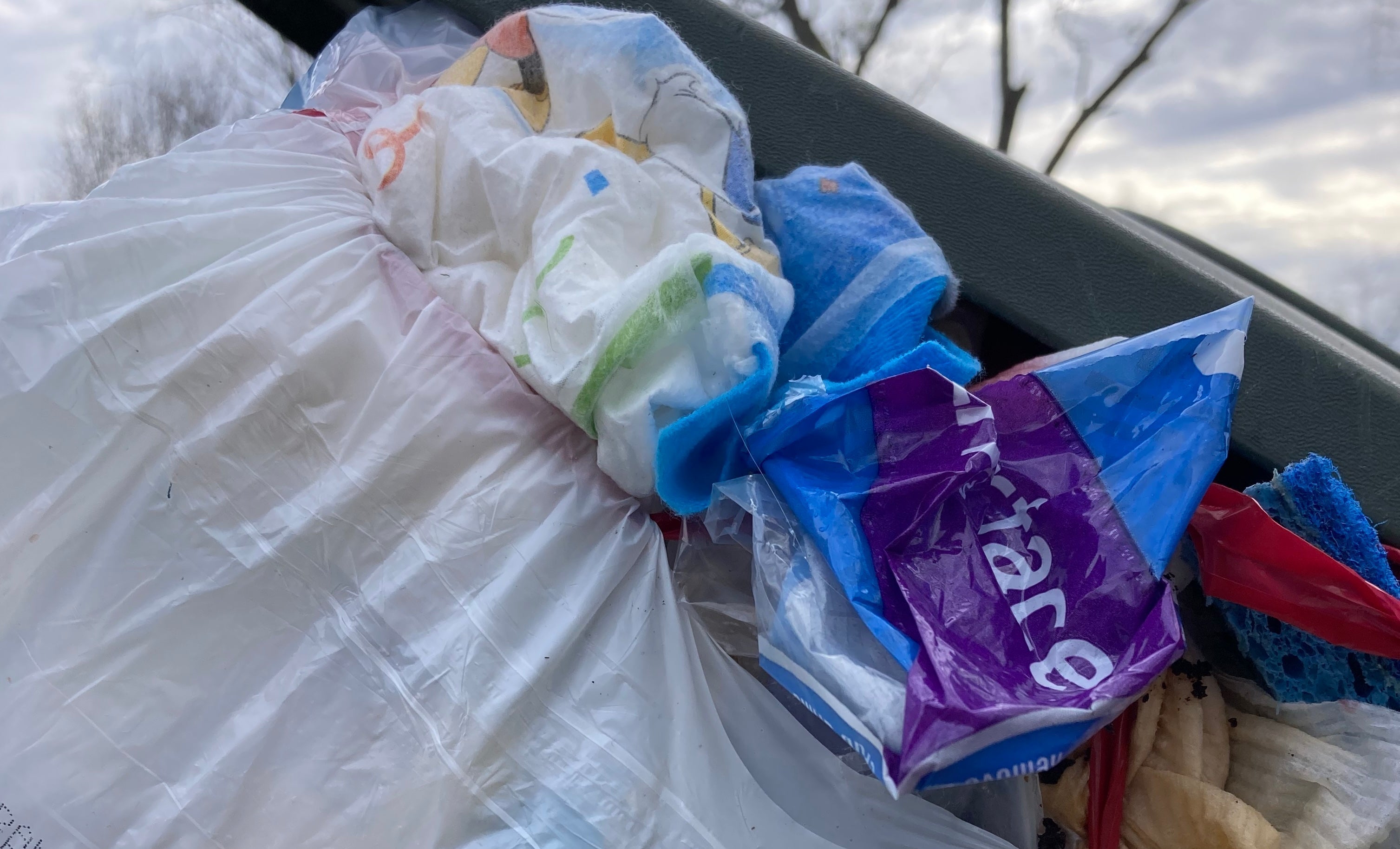
My mom used to teach a college class on the environment and sustainability. Every year, the class would visit the local landfill. The woman giving the tour would ask, “Who grew up around here?” A group of students would raise their hands. Then she’d point to the landfill and say,
“Your diapers are over there.”
Talk about an eye-opening moment. With disposable diaper rates at about 90% in the 1990’s and early 2000’s, most of her students had left behind a significant heap of trash before they even had permanent memories.
Do you ever think about that? How much trash you generated as a baby? The smallest people in our society are creating some of the biggest environmental footprints, and they have NO say in the choices that contribute to this problem.
Consider the following facts:
- A single disposable diaper will only be on your child for a matter of hours before it spends the next 500 years decomposing.
- On average, a baby goes through 6,500 disposable diapers before reaching toilet independence.
- That’s 2 TONS of waste, per child, in the landfill for the next 500 years.
- That’s 6,500 diapers that will require fossil fuels to transport to your home and then to the dump.
- 6,500 diapers whose manufacturing process uses non-renewable petroleum plastics and consumes ONE BILLION trees...
Every. Single. Year.
This is assuming that the diapers are disposed of properly, and many of them are not. Diapers that don't make it to the landfill often end up in our oceans and pose a significant threat to coral reefs and ocean life.
Is the “convenience” of disposable diapers really worth this enormous environmental burden?

A disposable diaper was found washed up on the beach by Rebecca Larsen. Although is unclear how much time it spent in the ocean, it is still largely intact underneath the muck.
If you’re on the fence between choosing cloth or disposable diapers, this is your wake-up call to choose cloth. Still need more convincing? Here’s another four reasons to ditch disposables:
Cost
Disposable diapers are very cheap on an individual level, and you buy them a little at a time, spreading out the cost. Cloth diapers, on the other hand, are a fairly big up-front cost. This disparity can create an illusion that disposables are cheaper than they really are.
Let’s break down how much it really costs.
Say you’ll have 3 children. On average, parents spend $1000 on disposable diapers per child, per year. The average potty-training age is 3 years during the day and 5 years at night.
For 3 kids, you’re looking at about $4,000 per child, or $12,000 total.
Contrast that with cloth diapers. A full set of cloth diapers that will grow with your child from birth to potty independence is a one-time cost of about $500-800. Those diapers will last for all 3 kids and might even be in good enough shape to sell second-hand when you’re done with them.
WOW. That’s a difference of about $11,500!
But wait! Don’t cloth diapers cost money to launder? Yep. It’s estimated that diaper laundry will cost you $7-9 per month, which is about the same as you would spend on disposable baby wipes. If you’re using cloth diapers, though, you may as well also use reusable wipes. They take up barely any room in your washer, clean baby more efficiently, and the money you’ll save on them more than makes up for laundering costs.

Cloth diapers are even more affordable if you buy them second-hand or receive them as gifts or hand-me-downs. Struggling families might also be eligible to receive free or discounted cloth diapers through a charity like the Cloth Option. Some crafty parents even make their own cloth diapers!
Don’t forget that the cost of disposable diapers is skyrocketing, and nearly HALF of American parents are struggling to pay for them. What seems affordable today might not be tomorrow; investing in cloth from the beginning is the wiser financial choice.
Potty-Training
In the 1950’s, over 90% of babies were out of diapers by 18 months. Today, that figure has doubled to 3 YEARS.
What happened?
Disposable diaper companies want your kids in diapers as long as possible because it’s profitable for them.
The phrase “wait ‘til they’re ready” was invented as a marketing strategy. It was promoted by a paid pediatrician spokesman who helped convince parents that they were “rushing” potty training if they “pushed it” too young, which could cause all kinds of physical or psychological problems. Ever since, the potty-training age has slowly crept up, and the “readiness” myth is now commonly accepted as fact.
We go into more details on the rise of disposable diapers here.
Meanwhile, cloth diaper companies have no monetary stake in when your child potty trains, and we’ll happily tell you that you can introduce the potty to your child as young as you want! You can even start as young as birth—it’s called Elimination Communication—and it won’t hurt your baby one bit.

Even newborns can use the potty!
In fact, cloth diapers help the potty-training process by feeling wet. Flappy-Nappies® brand diapers help the process even more by popping open quickly like a flap when baby needs to go. The Flappy-Nappies® website also has a FREE comprehensive potty-training guide HERE, which includes a comprehensive troubleshooting FAQ, age-based how-to's, and FREE online workshops. All you need to do to instantly access the guide is create a free account!
Parents who use cloth diapers have kids that are diaper-free at a biologically normal age (18-24 months). If you decide to use disposables, you risk doubling the time you’ll be using them!
Convenience
Yep, you read that right! Cloth diapers are more convenient than disposables if you pick the right brand.
Flappy-Nappies® are the easiest diapers on the market to use and change. You can change them one-handed without a changing pad while your baby stands and plays.

Flappy-Nappies® pop open like a flap, making it easier than ever to introduce the potty. Your diaper-changing days will be long behind you before you know it!
You never need to worry about running out of Flappy-Nappies®, because you just wash and reuse them.

The only difference between a Flappy-Nappies® cloth diaper and a disposable one is that you toss the Flappy-Nappies® in the hamper when you’re done instead of the trash. It takes about the same amount of time to toss diapers into the wash as it does to haul a bag of disposables to the dumpster.
Why waste your money on a disposable product that isn’t even any more convenient than the reusable alternative?
Chemicals
Have you ever looked into what’s ACTUALLY in the diapers you’re supposed to put on your baby’s most sensitive body parts?
They are comprised of dozens of ingredients, such as:
- Super absorbent polymer
- Chlorine bleach
- Dioxins
- Synthetic fragrances
- Artificial dyes
- Phthalates
- Volatile organic compounds
- Petroleum-based polypropylene
- Surfactants
- Wood fluff pulp
- Thermoplastic polymer
- Petrolatum lotions
- Persistent organic pollutants
- And a bunch of other undisclosed ingredients.
Many of these components are knowingly harmful to either humans, animals, the environment, or all three. Some companies claim to make so-called biodegradable or chemical-free diapers, but all disposable diapers contain at least some of the above-listed ingredients.
Oh--and "biodegradable" diapers are just diapers that you pay extra for so that you can feel better without actually being better. They won't biodegrade if they're landfilled or incinerated, and most disposable diapers are not disposed of properly to begin with.
On the other hand, you can get cloth diapers made almost completely of natural components. Wool diapers in particular are as simple as it gets: They’re made from sheep’s wool and can be used with 100% organic cotton pads.
What would you rather wear on YOUR bottom?

Wool diapers have amazing properties and are an excellent diapering choice for nights!
Take the leap
Disposable diapers are so universal, you may not know even a single person who uses cloth. Disposables are familiar; cloth seems intimidating and hard (although I promise it’s not!).
The good news is that this doesn't need to be an all-or-nothing choice. You can use disposable diapers during the day and cloth at night, or vice versa. You can use disposables during the busy week and cloth on the weekends. Some parents use cloth at home and disposables while out and about. Making potty-training a priority is also a great way to minimize diaper use altogether.
ANY cloth diaper use is a victory for the Earth, and our babies are worth the effort. Remember, our children will inherit the planet from us in whatever shape we leave it for them. For them, we can do hard things.
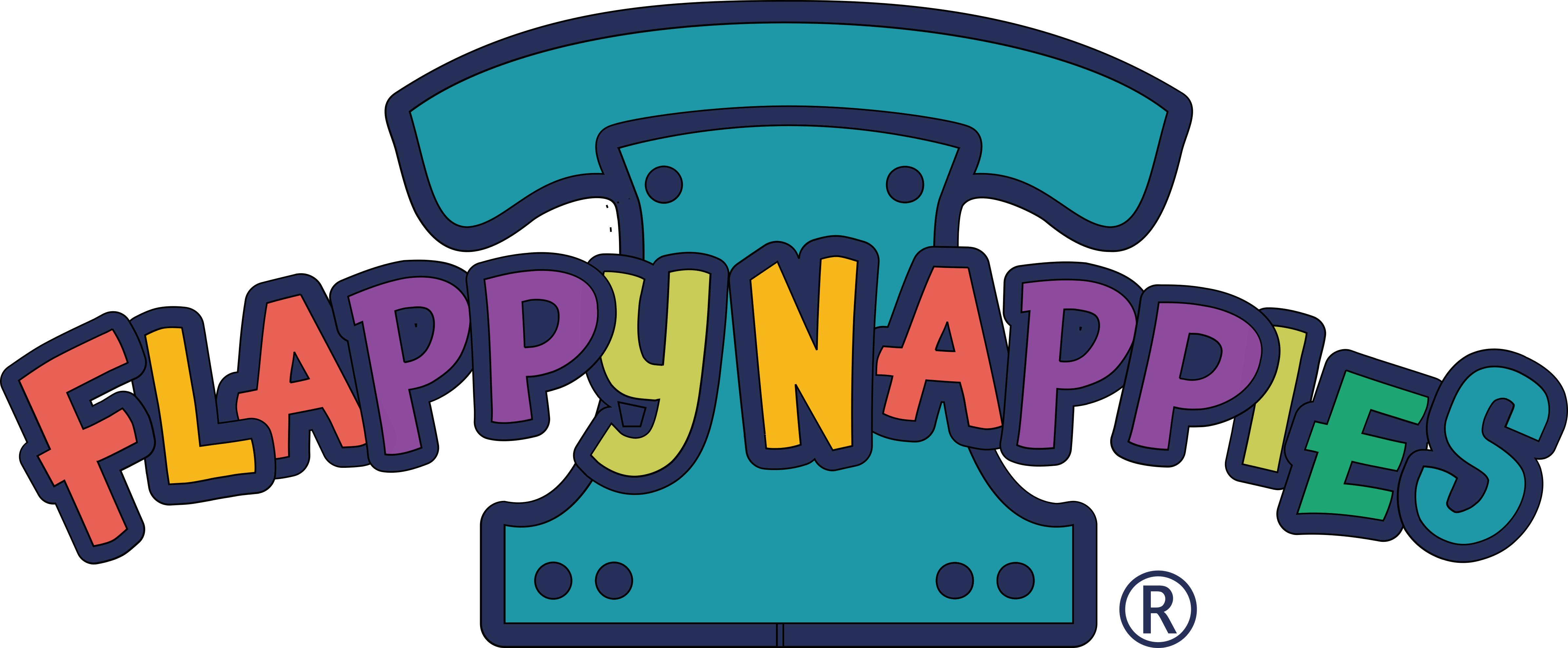
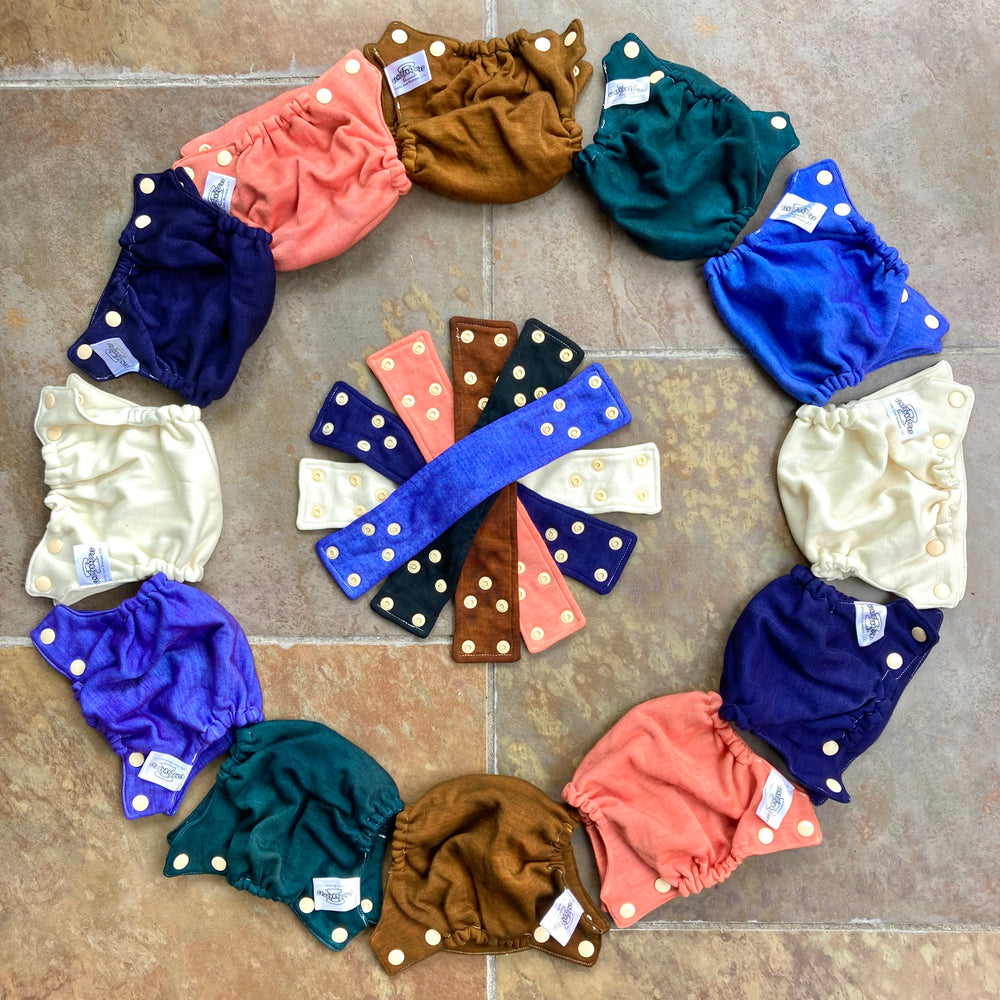


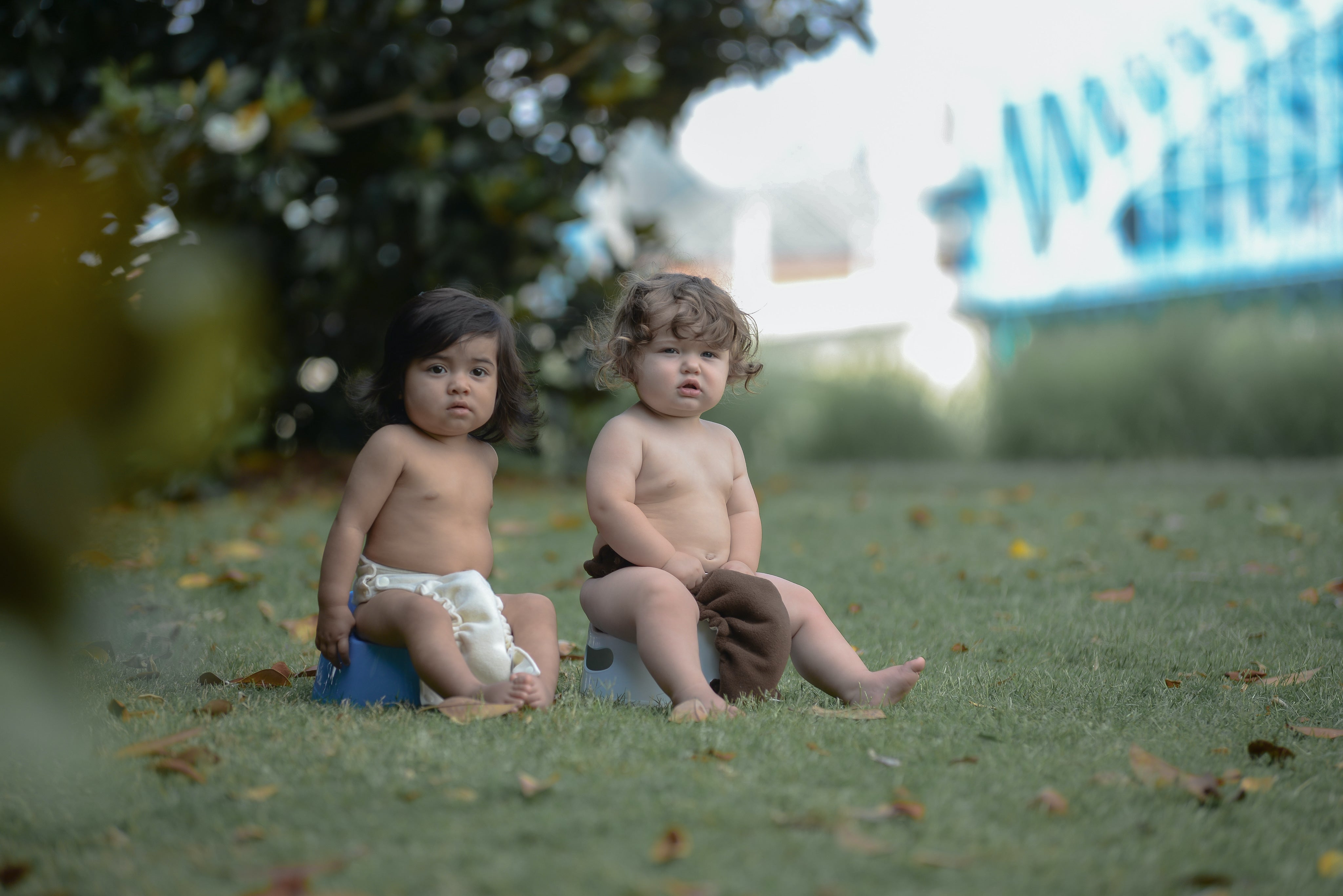
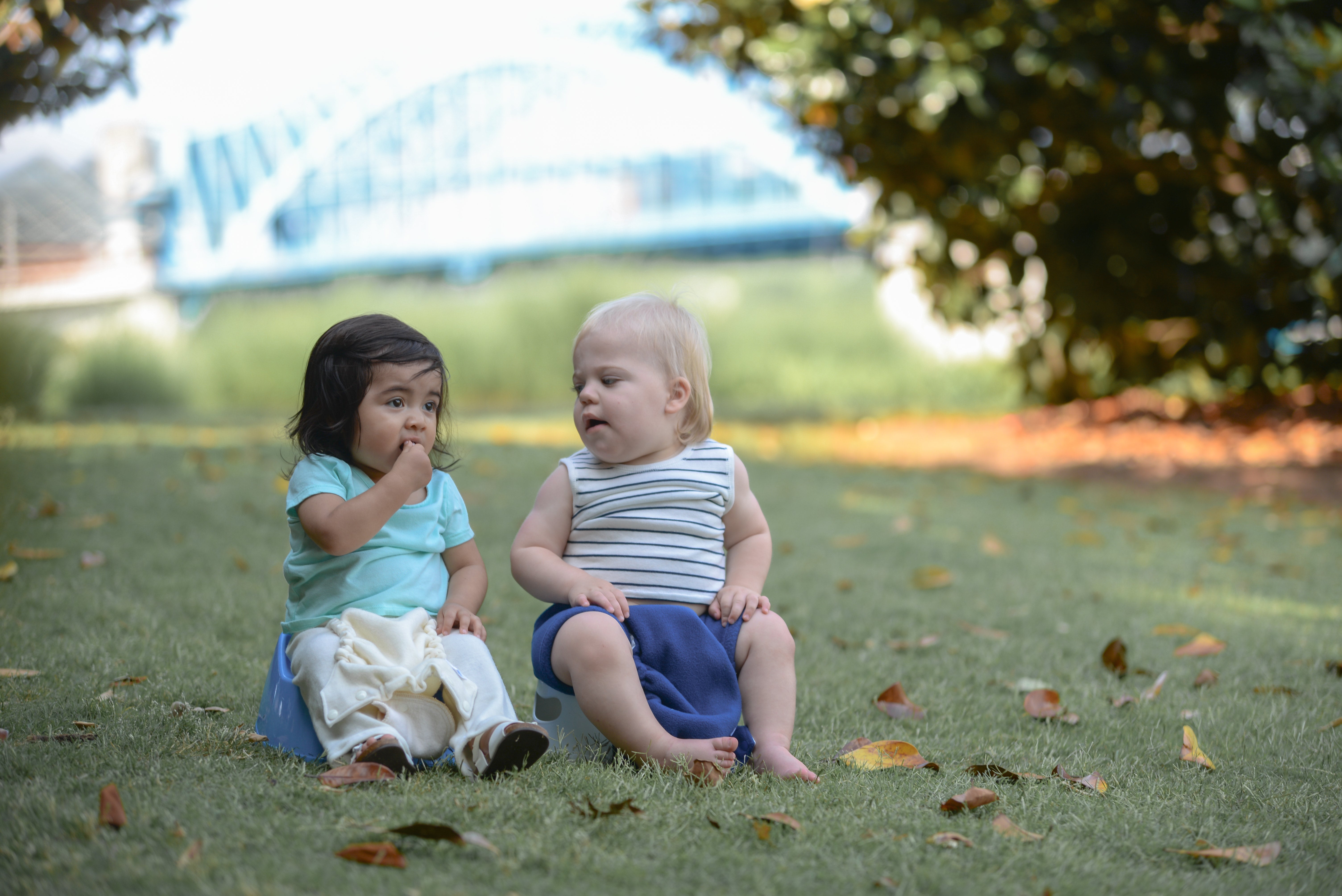
Laissez un commentaire